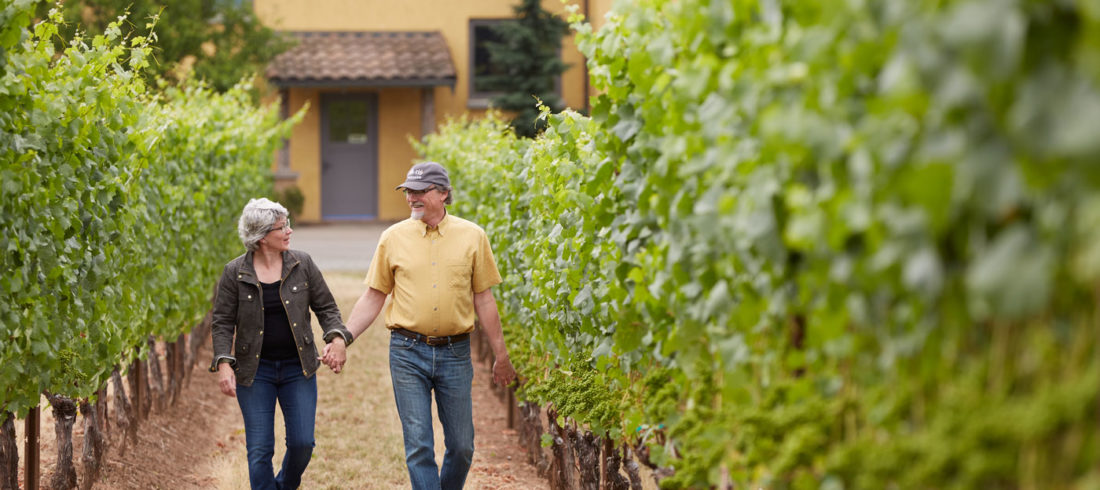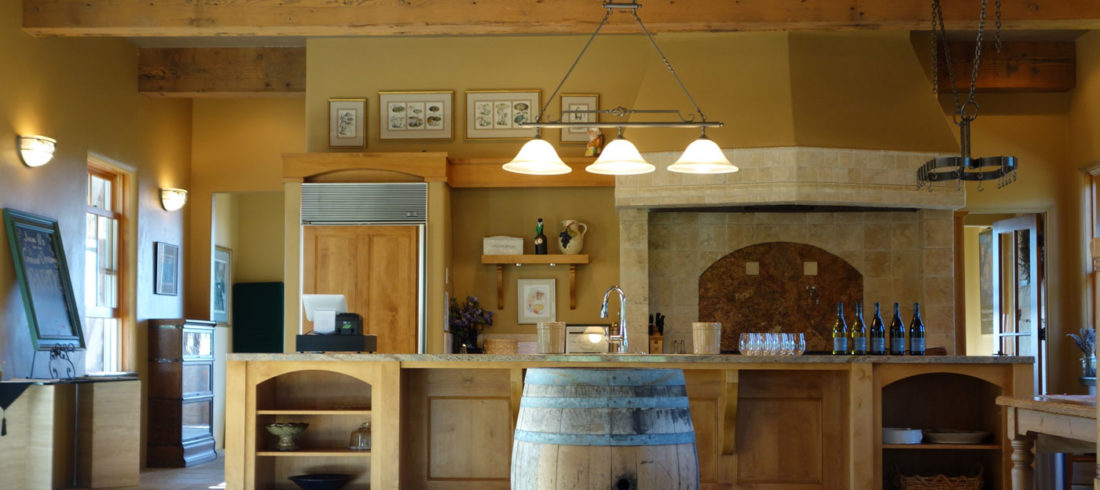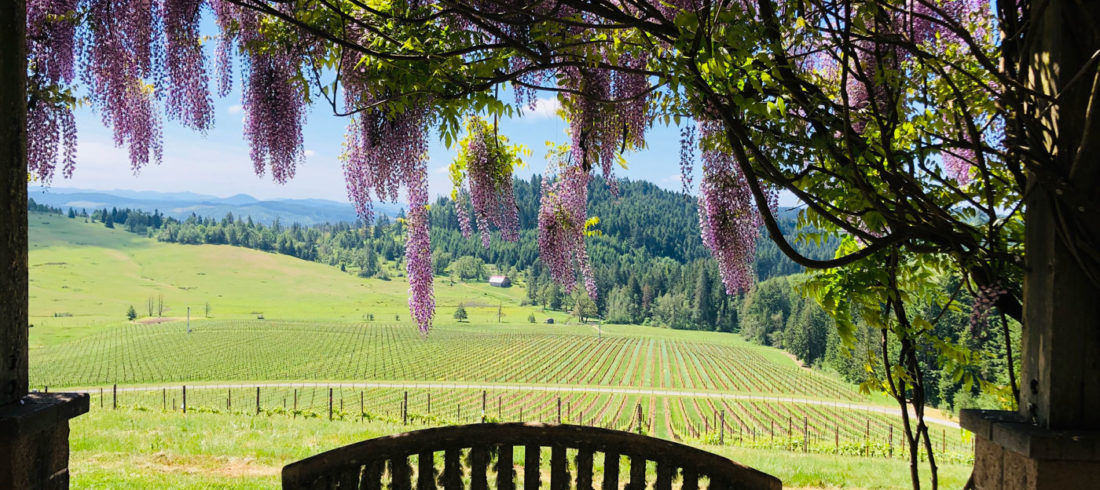Iris Vineyards in the southern Willamette Valley is a miracle of deliberate—even courteous—water use for power generation and making things grow, including grapes. There are more than 70 wineries in middle distance from Eugene, and the area’s stewards pair our superb natural resources with human ingenuity to craft solutions that aren’t just about winning at any cost.
Eugene is not the Garden of Eden, but enough vegetation grows here to make you appreciate how a measured relationship to nature can let good folks prevail. The Iris Vineyards story fits this narrative.

The owners, Richard Boyles and Pamela Frye, christened their vineyard after the iris flowers spotted on their land, but the name also evokes Greek mythology.
The goddess Iris is the libation server to the gods of Olympus. She travels by rainbow, the conduit between mere mortals and a not-so-always-perfect race of gods. Rainbows resonate in more modern culture as well—think Judy Garland forever singing of escaping to the other side.
Iris Vineyards appreciates the mythology and the natural wonder of rainbows. It inspires them to combine their business acumen with a commitment to their surroundings.

Iris wines are made in Cottage Grove, but the fruit comes from their vineyards located in the coastal range, about 1,000 feet up and surrounded by a forest environment the owners are gradually restoring. Combine that with their foundational commitment to the process of excellence and Iris is not just another winery.
You can taste in Iris wines a judicious approach to winemaking that runs along very coherent and identifiable lines. The estate wines, from the 43 acres planted on the winery’s slopes, showcase how higher altitudes affect grapes—slower ripening under varied sun exposures, better acid balance, and a kind of transparency between mineralogy and fruit. Varietal characteristics are easy to spot and appreciate.
Winemaker Aaron Lieberman allows the grapes to lead the way to wines that are fruit-forward, with balanced acidity and low alcohol. A soil savant with a degree from OSU, Lieberman worked in the Peace Corps helping Guatemalans farm more productively. He began his winemaking journey at Amity Vineyards, and worked at Owen Rowe prior to joining Iris in 2008. “I like the fact that our elevations lead to long hang time and slow ripening,” he says, “because it allows me to guide what I sense the vintage will do rather than override what is already there.”
To get a sense of the Iris portfolio, let’s look at two pinot noirs, a pinot gris, and a chardonnay. These mostly come from the winery’s Chalice Vineyard in the Coast Range.

The 2016 pinot noir is all estate grown. It’s an intense, full-throated expression of the varietal. We might call it a “food soldier” since it pairs well with grilled meats and salmon steaks. The 2015 pinot noir adds fruit from elsewhere in the Willamette Valley and is very representative of wines of its ilk—more acidic yet still fruit-forward, a solid feel in mid-palate, and a finish that doesn’t leave until tomorrow’s breakfast. Its price point is attractive, too.
The estate pinot gris for 2016 is an incomplete pleasure; that is, the elements are present but you should let the wine get some air before drinking. On the other hand, the 2017 edition arrives ready to savor. The fruit-acid balances are right, and it is a wine to keep on hand for the right bright occasion.
Many Oregon winemakers have trouble with chardonnay. Lieberman appears to be working toward a chardonnay that is suggestive of Burgundian whites while not trying to imitate them, which is a happy goal.
Other notable wines in the portfolio include a 2017 Tempranillo and a 2016 Syrah, both made with grapes from Southern Oregon’s Applegate Valley. Each has heft and depth, with mouthfuls of flavor, good body, layers of pleasing aromas, and—especially the Syrah—a delightfully enticing visual appeal in your glass.
Iris Vineyards plans to double its current production of about 12,500 cases within three years. These folks mean business, but they also focus on stewardship. Iris Vineyards is worth watching both for its good farming practices and its noteworthy wines. We might say there’s some gold in those Coastal Range foothills; the rainbow is a nice flourish.
Iris Vineyards, 82110 Territorial Hwy, Eugene, 541/242-6588, irisvineyards.com

